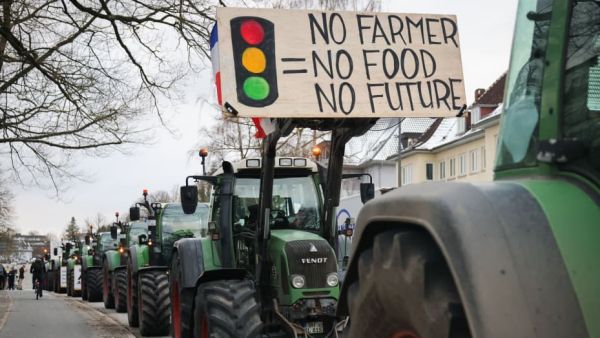S&D Group MEPs from the agriculture committee started the New Year with a serious discussion with experts who know the dairy sector from the inside.
Ricardo Serrão Santos MEP, the S&D Group's shadow rapporteur for the Parliament's report on the crisis, said:
“It is natural that the S&D Group should focus on what is, in effect, a social problem and not only a food-sector problem.
“There are areas where there is no economic alternative to milk production and where the sector has a high value. This is the case for example with mountain areas or other regions such as the Azores. The end of milk quotas will have important social and economic consequences and it is absolutely imperative we find an alternative method of balancing the milk market."
Experts from the dairy sectors in Portugal, Italy and Spain* came to Brussels to outline the problems in detail and put forward ideas for future policy development. They were united in emphasising that milk production, transformation and distribution involves long-term investments in livestock, equipment, land and working relationships. This is not a process which can be switched on and off at the whim of a market which is speculative, dictated by purchasers and weighted against producers.
S&D MEP Constantin Rebega (Romania) added:
“Every drop in price sees more farms and dairies going out of business in every part of Europe.
“In Romania, for example, we have seen a real slump in the number of dairies since the embargo on trade with Russia.”
Both MEPs and experts put forward ideas to be looked at in the coming weeks.
Marc Tarabella MEP (Belgium) said:
“Capping the upper price limit and providing support below a certain threshold must be considered, and for this we have to think about legislation.”
Nicola Caputo MEP (Italy) stressed the need for producer organisations to be strengthened and used more widely:
"This would particularly help small-scale farms, as they would have increased negotiating power. In some cases, for example for Grana Padano, suppliers had a reference figure and any production above this had to have an identified destination. This led to an increased contribution to the consortium to which they belonged.
Clara Aguilera MEP (Spain) said:
“The use of storage must also be considered, but treated with caution, having seen the impact in other sectors."
Eric Andrieu MEP (France) reminded attendees:
“We may need counter-cyclical measures for the short-term crisis but we have to look at agriculture as a whole and with a long view to maintain balance.”
Ricardo Serrão Santos stressed the vital role of the milk sector in both the social and economic life of Europe's regions and recapped the measures for further consideration:
"We must look at: securing fair payments for producers through the milk supply and the distribution chain; carefully managing supply and demand for protected denomination products; possible quotas to be triggered only at times of need; widening the scope of the Milk Observatory; and the revision of intervention prices."
At the end of the debate, S&D agriculture committee co-ordinator Paolo de Castro concluded:
“I am proud that our Group is already up and running with this issue as it will really come to a head in the next two months when milk quotas come to an end.”
*Experts included:
Jorge Rita – President of the Azores Farm Federation
Cesare Baldrighi – President of the Consorzio del Grana Padano
Román Santalla – Unión de Pequeños Agricultores y Ganaderos








